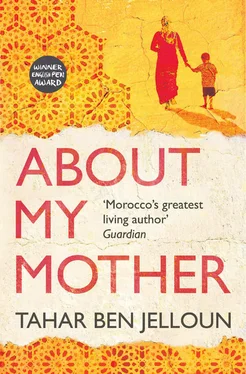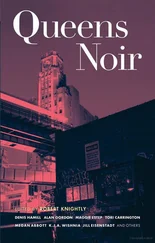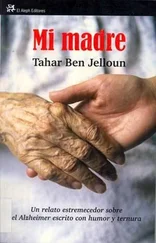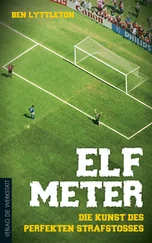Tahar Ben Jelloun
About My Mother
Born in Fez, Morocco, TAHAR BEN JELLOUN is an award-winning and internationally bestselling novelist, essayist, critic and poet. Regularly shortlisted for the Nobel Prize in Literature, he has won the Prix Goncourt and the International IMPAC Dublin Literary Award. His work has also been shortlisted for the Independent Foreign Fiction Prize. He received the rank of Officier de la Légion d’honneur in 2008. Some of his works in English translation include The Happy Marriage, This Blinding Absence of Light, The Sand Child and Racism Explained to My Daughter .
ROS SCHWARTZ has translated a wide range of Francophone fiction and non-fiction writers including Andrée Chedid, Aziz Chouaki, Fatou Diome, Dominique Manotti and Dominique Eddé. She was made Chevalier dans l’Ordre des Arts et des Lettres for her services to literature in 2009.
LULU NORMAN has translated the work of Mahi Binebine, Albert Cossery, Mahmoud Darwish, Amin Maalouf and the songs of Serge Gainsbourg. Her translations have been shortlisted for the International IMPAC Dublin Literary Award, Independent Foreign Fiction Prize and Best Translated Books Award, among others.
Since she’s been ill, my mother’s become a frail little thing with a faltering memory. She summons members of her family who are long dead. She talks to them, is astonished that her mother hasn’t come to visit, and sings the praises of her little brother who, she says, always brings her presents. They file past her bedside, sometimes they linger. I don’t interrupt them, I don’t like to upset her. Keltum, her paid companion, complains: ‘She thinks we’re in Fez, the year you were born!’
Mother’s revisiting my childhood. Her memory’s been toppled, lies scattered over the damp floor. Time and reality are out of kilter. She gets swept away by the emotions that come surging back. Every quarter of an hour, she asks me: ‘How many children do you have?’ Every time, I answer in the same even tone. Keltum is agitated and interrupts to say she can’t stand Mother’s repeated questions any more.
Mother’s afraid of Keltum. She’s a woman whose eyes betray her wicked thoughts and she knows it. When she speaks to me, she looks at the floor. When she greets me, she’s obsequious, bowing and attempting to kiss my hand. I don’t want to push her away, or put her in her place. I pretend not to know what she’s up to. I can see fear in my mother’s eyes. Fear that Keltum might leave her on her own when none of us are here. Fear that she won’t give her her medication. Fear that she’ll let her go without food, or worse, give her meat that’s gone off. Fear that she might spank her, as if she were a naughty child. In one of her lucid moments, my mother said to me: ‘I’m not mad, you know. Keltum thinks I’m a little girl again. She tells me off, she threatens me, but I know it’s the pills playing tricks on me. Keltum’s not a bad person, she’s just prickly. She’s tired. She’s the one who washes me every morning, you know, son; she’s the one who cleans up the stuff that leaks out of me. I couldn’t ask that of you, or your brother, so Keltum’s here for that too. It’s as well to forget the rest …’
How can I forget that my mother’s in the care of a woman who, over the years, has become hard, cynical and grasping? Why is my mother journeying back to childhood under the malevolent gaze of this bully?
Mother started talking about the midwife, Lalla Radhia, again. She insisted I invite her to lunch and told me where to go: ‘She lives just before Batha, the big square at the entrance to the medina. Go to the café run by Sallam, Khaduj’s husband — you know, Uncle Moulay Ali’s daughter-in-law. Go into the café and ask for her. Everyone knows her, she has to come!’ I try to remind her that Lalla Radhia’s no longer with us, but she insists she wants her at the house for lunch.
Since Mother’s moved into a different bedroom, she’s convinced she’s in a different house and is living in a different city. We’re no longer in Impasse Ali Bey in Tangier, but the Makhfiya district in Fez. We’re no longer in the year 2000, but 1944. Her dreams won’t be extinguished. They assail her waking hours, refuse to leave her alone. The present is lurching. It flickers, sputters back to life and then fades altogether. It no longer concerns her. She’s become detached from it, which doesn’t worry her in the least.
She tells me she saw a man and a woman talking in the hallway. They must have come to buy the old house in Fez. She warns me not to let it go cheaply: ‘Times are hard. The war’s not over and besides, your father won’t be happy! I heard the man say to the woman, “It’s a bargain, we should seize the opportunity.” Anyone would think they lived with us and knew we were struggling. The man’s not from Fez, he has a country accent − Fassi’s more refined. And in any case, we’re not selling!’
Today, Zineb, her nurse, has come to change her dressings. No longer able to recognise her, Mother refuses to let her touch her foot. Zineb says she won’t hurt her. Mother smiles: ‘If you do, my father will know all about it. I’m not a child, so go on, clean the wound and don’t treat me like a frightened little girl.’ Then things fall back into place and she remembers everything. It was just a lapse. A memory lapse. Her recollections are a little hazy.
Mother threw a pretty gold chain down the toilet. Keltum fished it out and washed it repeatedly for two days, then soaked it in adulterated eau de cologne.
My sister has come from Fez to look after her. Mother’s annoyed: she thinks she’s her own mother. My sister’s getting on a bit too, she’s only sixteen years younger than my mother, the daughter of her first marriage. Mother remembers very clearly: ‘I’d just turned fifteen. My husband was strong and handsome. The typhus epidemic carried him off before my daughter was born. A widow at sixteen!’
There were foreigners in town but it wasn’t yet wartime. I think I’d been noticed at the hammam; that was often where mothers chose wives for their sons. I remember, an older lady came over to my mother and asked her for a little rasul: ‘Mine’s finished. But our sort can help each other out, can’t we, Lalla Hajjah?’ My mother, who hadn’t yet made the pilgrimage, answered: ‘God has not yet shown me the way to Mecca, I wait and I hope − but here, take this rasul, it’s from Chrif Wazzani’s. It smells lovely and it’s good for the skin.’ I listened to this exchange, little suspecting it was a marriage proposal. True, at one point the lady murmured in my mother’s ear: ‘May God protect your gazelle, whose skin is so white and whose hair is so long!’ That’s what people say when they want to propose marriage: ‘May God protect her and keep her from wicked people’s eyes!’
A few days later, sounding half-hearted, even resigned, my mother said: ‘I think, daughter, you’re about to be married. Your father consents, especially since he knows the family of the young man whose mother I met. They’re a Chorfa family, noble people, descendants of our beloved Prophet. The young man works with his father, who’s a trader in the Diwane, right beside your uncle Sidi Abdesslam — as a matter of fact, he was the one who thought of you when he saw how well the young man was doing. The mother seems a good person from a fine family; we found out that our parents knew each other well. They’re a true Fassi family like us, and you know, daughter, a Fassi girl can only be happy with a Fassi man of her class. Our kind don’t mix, our forebears knew that only too well and cultivated relationships within the same prominent family. I’d never give my daughter to a man whose family wasn’t known to us, someone from another city like Casablanca or even Meknès. A Fassi man for a Fassi woman, that’s a guarantee and a precautionary measure we shouldn’t ignore.’
Читать дальше












